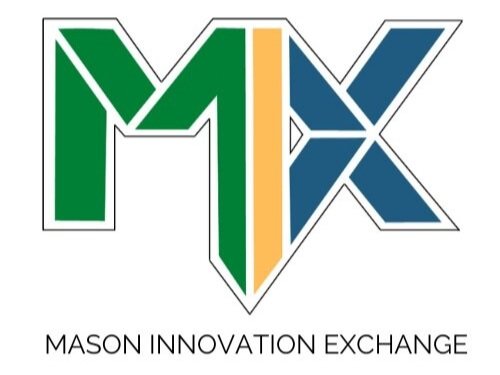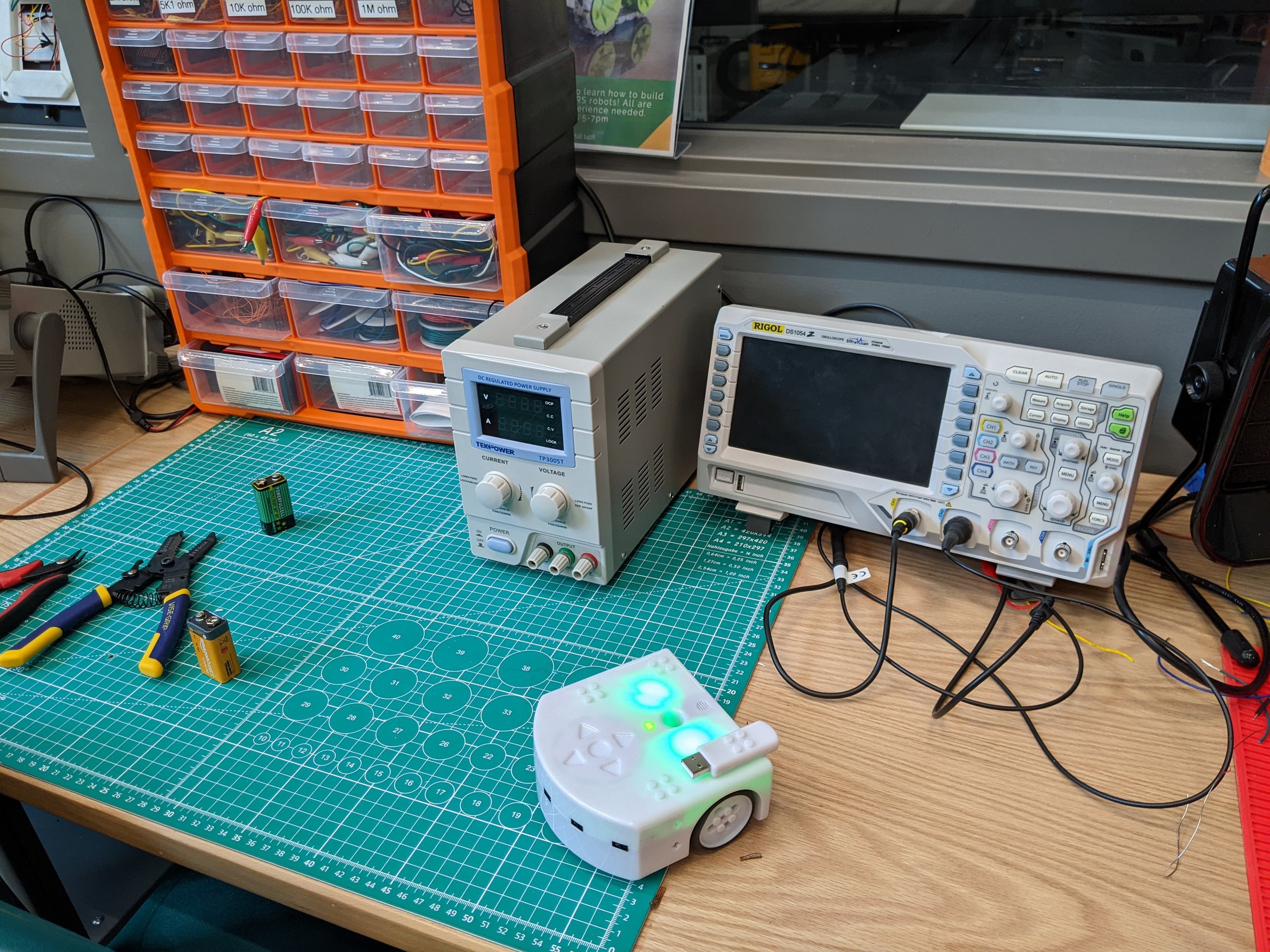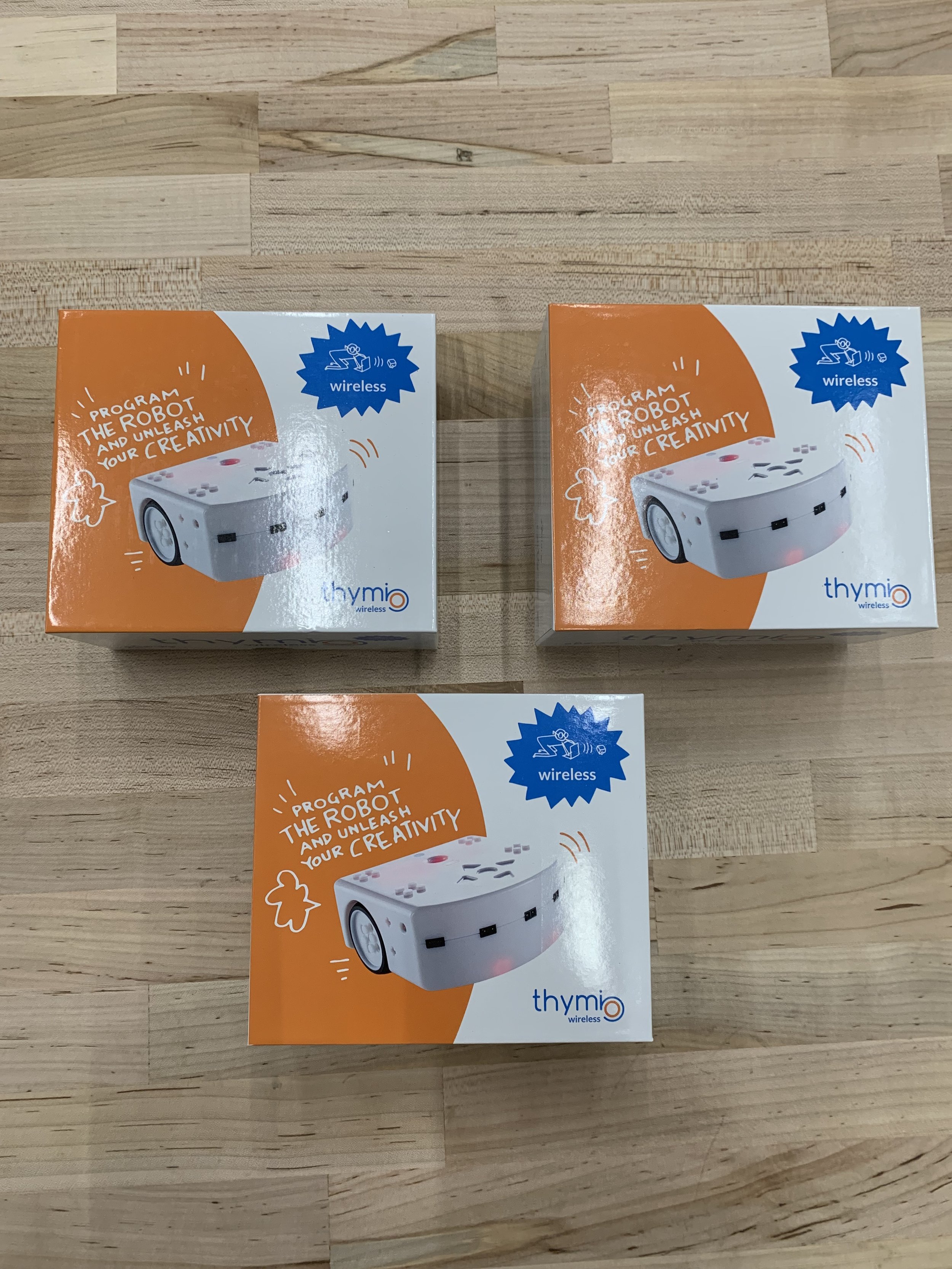Thymio Robots and Computer Game Design Courses at the MIX
Professor Ted Prawat recently received a grant and has launched an exciting partnership with a leading robot designer from Switzerland, Thymio Mobsya, to provide cutting-edge robotic equipment to be incorporated into Prof. Prawat’s courses. Combining serious games and robots presents an exciting opportunity for students to learn about these growing fields through hands-on design thinking and creative problem-solving in game design courses being taught at the MIX. Thymio was developed at The École Polytechnique Fédérale de Lausanne (EPFL), a public research university located in Lausanne, Switzerland.
In Professor Prawat’s Mason Core Introduction to Game Design Course, Game 101, students will have the chance to explore serious game design and robots. These robots are now making their way to Prawat’s game design courses at the MIX Innovation Exchange in the brand new Horizon Hall. The partnership was originally fostered by Gisele Stolz, Director, Entrepreneurship Programs, MIX & MEC Business Incubators, Office of Innovation and Economic Development at George Mason University. In discussions with Director Stolz earlier this spring, Prawat learned of the opportunity to work with these robots and incorporate them into his course curriculum. Professor Prawat has always been interested in the use of cutting-edge technology, i.e. AR / VR, in his game design courses, which is a major goal of the computer game design program at George Mason University.
The partnership with Thymio Mobsya was formalized when they agreed to lend three robots to Professor Prawat to experiment with in his game design courses. The Thymio robots are fully programmable and make use of an introductory coding language familiar to all game design and engineering majors known as Python.
As Professor Prawat noted in his proposal to the company for why he wanted to make use of the robots: “These devices will add a vibrant dimension to my intro and major game design courses at the MIX. Having students work with robots like Thymio--and the international expertise that is, hopefully, provided by some of your people--will be impactful.”
Students will have the opportunity to engage their imagination, and their design thinking skills, to learn how to program the Thymio robots similar to the programming for a game character with the Unity 3D game engine. “We can see and understand the enriching STEM skills required to program the Mars Perseverance rover, using the big ideas of pathfinding to navigate the Martian terrain. This requires creative thinking and problem-solving. With the Thymio partnership, and the Unity 3D game engine, students will be able to apply and learn about these interlocking concepts because the programming behind them goes hand in hand. The exploration of this deeper knowledge in a classroom encourages creative and analytical skills that employers in all companies are looking for in the new "metaverse" era."
It is this overlap between game design and robot design that will engage students’ critical thinking and imagination. “It is for these reasons that I am thankful for the partnership with Thymio and also, of course, the educational opportunities it will afford my game design students here at George Mason University,” said Professor Prawat.
For more information about the EPFL and the Thymio robots, please visit their website here.




